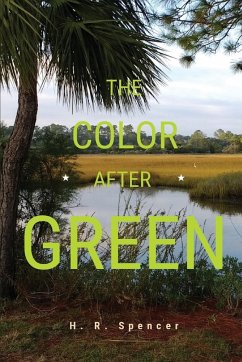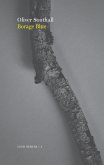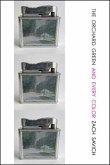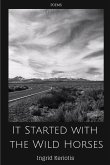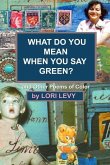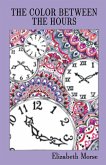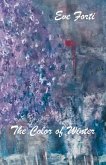From the very first poem, where sprawling development drives deer out of their forest home onto into a suburban neighborhood, South Carolina poet, H. R. Spencer's work confronts, too, the human challenge to understand our place in the natural order. The Color After Green crosses unique human territories from the dangerous work of urchin divers in Maine to the manufacture of deadly chemicals that spill into our waters and remain poisonous a half century later. In another poem, the harvesting of horseshoe crabs, where products from their blood are used to create medications, becomes a fable, where the Grandest Horseshoe laments their collective endangerment with a Monarch butterfly and a Red Knot sandpiper. The effects of global warming show up in the title poem and in "Eco-Travel," a vivid description of a trip through the "rainless rain forests" of Costa Rica. Other poems deal simply with the speaker's observations of the world around him, whether kayaking and encountering small epiphanies, such as the water striders "dimpled symmetries" mirroring those of the paddle or the "throaty red luminescence" of the green anole "capturing sunlight" on a button bush. He watches the spider lily, their buds "swell, buckle open at their crown" and explode into a "leafless, botanical firework," or the rats in the corn crib with "wet bituminous eyes." The poet's background as a visual artist lends authenticity to a poem about the last reflections of John James Audubon on his life's work or later where he speaks through the voice of Georgia O'Keeffe describing the emotions behind her flower paintings. Toward the end the book becomes more a personal journey through the poet's own childhood, his rich engagement with the life in and on Virginia's historic James River, and the passing of the generations there. The final two poems are a terrifying description of surviving Hurricane Hugo in 1989 South Carolina and a meditation on the death of his teacher, James Dickey, that unites the spiritual kingdom of the poet with his deliverance back into "the kingdom of ferns, of mosses," with "emotions, pre-vertebrate," and "his motion now the motion of the earth." These poems reflect on the beauty and complexity of nature and Man's relationship to the natural world, but don't hesitate also talk explicitly about our troubled environment and how our foolish, sometimes selfish, attitudes can lead toward its destruction.
Hinweis: Dieser Artikel kann nur an eine deutsche Lieferadresse ausgeliefert werden.
Hinweis: Dieser Artikel kann nur an eine deutsche Lieferadresse ausgeliefert werden.
